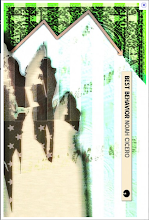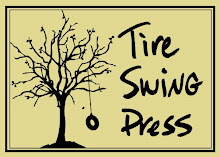Guy #1:
So far it seems the most common thread among the Occupy Wall Street is End the Fed or Audit the Fed. Sounds reasonable, though it will be impossible to get either Democrats and Republicans to go along with this. While a good amount of the legislature probably doesn't even know what the Federal Reserve is, I'm sure both benefit from the spoils equally, one way or another. Then there are Party Loyalists, who will do anything for an invite to the party.
Guy #2:
I am not sure what auditing the Fed would hope to accomplish. The Fed operates in a fairly transparent way to begin with and the truth is that the money that the Fed loans is not real money. It is IOUs, so it isn’t like you are going to find payoffs or anything like that. Also, the Fed takes in loans from banks and makes loans to banks so for the most part it is really just other bank’s money that is being loans (of course no actually money is changing hands, just IOUs). Also the rates that the Fed loans at are public and standardized. There is nothing secret about that.
As for ending the Fed, I could not imagine a less responsible way to deal with our currently economic crisis. Maybe eliminating Dodd/Frank, would be AS irresponsible, but not more.
We can pretend that the solutions are simple but frankly, that is what got us into this mess. The idea that decisions don’t have consequences is what led to the current economic crisis. They do have consequences, and it is possible that they are very complicated and hard to see, but that doesn’t change them. We need responsible stewards of our country and they only way we get that (or even deserve it) is if we have a responsible electorate.
To prevent the next depression/recession we need to do one thing (and only one thing): Limit the amount of leverage that can be taken by banks. That is what caused the depression of 1929 (banks were over-leveraged in the stock market) and it is what caused this problem (banks were over-leveraged in real estate).
To correct, the current situation, we need to generate revenue quickly but we also need to look at long term solutions so that we don’t have this ideological brinkmanship every 10 years.
If we need to audit something it is the defense department and millionaires. If someone wants to audit the banks fine, but I can tell you right now that what is going to be found is that they: 1) made a ton of bad loans; 2) with borrowed money; 3) to people who had no business getting them.
The Fed (like the IMF) is a wonderful boogie man, but the truth is that change to the Fed (to anything really) will come from our policy makers. Dodd/Frank limited leveraging and created a fair number of regulations that will (in addition to a lot more) make large banks’ decisions much more transparent. It can absolutely be strengthened. The problem is that it is actually under attack right now from corporate interests and if the majority in the House of Representatives got their way, it would be eliminated completely. If the left gets distracted from the improvements that do NEED to be made, we are likely going to end up in an even worse situation.
Guy #3:
Guy #2 is on the money with this. We continue to allow the banks to dictate how we approach a solution. Even Bloomberg is taking their backs. Over leveraging is responsible for most financial crisis. That is true from household accounts to government budgets. It all has to be managed through regulation. I know that's a dirty word, but since our financial institutions are unwilling to do it voluntarily they have to be regulated.
Guy #1:
Guys, Audit the FED, not end the FED. If you're so confident in it you shouldn’t have such a problem auditing it to make sure it is working to benefit the people, not the government and the corporations. You both know the government is pretty close with big business, so why not make sure the FED isn't?
Guy #2
Auditing it is fine. I have no problem with it. I just have no idea what we would be looking for but maybe there is something there. I hope that it doesn’t feed conspiracy theories about the Fed though.
Ideas aren’t good just by virtue of being supported by John F Kennedy.
Also, I think that it is important to note that it is not just that corporations are close to government officials (FDA is a prime example), but also that corporations are close to politicians. They are the ones that legislate these things and as long as the Oil industry, the drug industry, etc, can spend unlimited money on electing a legislature, then that wont change.
Lastly, I am not sure what constitutes a "Democratic Party loyalist", but in the abstract I would profess to be one. At the same time I am also a former Democratic Party Staffer AND I have no idea what the official democratic party platform or "policy" is. My point is that as Will Rodgers if famous for saying, "I am not affiliated with any organized Party. I am a Democrat." Any attempt by others to assign a position to me based on my affiliation is more than unfair, it is actually in opposition to what I believe (as a democrat).
So, do I (a professed - and proud - party loyalist) think that there are democratic policies that I dont like? Yes. As far as Democratic policy is defined in a static sense (which I dont think that it is). I guess we can imagine that Democratic policy is defined by Congressional Democrats or the White House Staff or the Brookings Institute or Rachel Maddow, but that is not the case. Democratic policy is set by Democratic voters. Just like Republican policy is set by Republican voters. Both policies have changed radically over the last 125 years BECAUSE their voters have changed. As a matter of fact, Republican policy has changed drastically over the last 2 years for this very reason.
If the progressive movement wants to effect change, the way to do it is by winning over a plurality of voters. That is the ONLY way it can be done and that is good because the people need to have the reigns of power. That is why I am a democrat. Because I believe in equality of opportunity and I believe that together people are stronger than separately (which by the way is pretty much the argument FOR a Federal Reserve). If they dont take it or pass the chance to start a fringe movement, then shame on them. They will accomplish nothing. People can choose to vote for individuals that agree with them 100% of the time, and we will have a government of religious leaders (because no free thinking individual can find someone who agrees with them 100% other than in the mirror).
Guy #1:
I do not believe voters shape policy. I believe parties instigate policies. I believe people defy parties. I do not believe people.
Guy #2:
The US has the weakest political parties in the democratic world... really the entire world because non-democratic countries have even stronger parties (think Russia, Syria, etc.). In most democratic countries, the parties actually control policy and the individual elected official has very little influence. In the US, politics is all about the personality. Reagan, Clinton, Bush (2), Obama. They are pure personality. Bush (1), Nixon, Johnson where more party. (I left out Carter because he was kind of a mixture of both.
Party influence in US politics actually took even more of a hit when the Supreme Court removed all restrictions on political spending. The parties are essentially a laughing stock now. If destruction of political parties is the end, then the Citizen's United decision (allowing unfettered money in politics) will do exactly that. Under the current system, I am not sure parties will exist much longer in American politics. Instead, you will have the Chamber of Commerce Caucus, the Koch Brother's Caucus, the Religious Caucus, and the News Corp Caucus. This might sound exaggerated and over the top, but it isnt. Those are the interests that will elect our representatives.
Your belief that people dont influence policies if defeatist as far as I can tell. Honestly, the protests are a waste of time if that is the truth. What can the protests possibly accomplish if they dont influence policy? Obviously there will never be an audit of the Fed if that is the case. People need to support it and believe that it is necessary for it to have a chance at happening. But if people dont effect policy then not even that would work.
Parties are made up of people. There is no mysterious force moving them. Ascribing party insiders as rotten or bad or conspiratorial with big business is just as foolish as ascribing wall street protestors with some sort of virtue (or on the flip side saying wall street protesters are rabble-rousers or thugs or anarchists, etc.). They all have virtues and vices. They are ALL corruptible.
Guy #1:
All I can guarantee is the conversation at Occupy is mainly, Obama has to go. They do not complain about Herman Cain or Rick Perry. They do not talk about Bush. They want Obama gone. I don't have a problem with that, but I'm not sure I understand their alternative. The news would like you to believe this is an anti-Republican protest. A good chunk of these people call themselves Libertarians. This protest wont change anything, except some lucky people. The rest are doomed to repeat themselves.
Guy #2:
The news I have watched has not implied anti-Republican. First they implied (or straight out said) that it was anarchist and anti-business. Now the message seems to be anti-big bank, anti-conservative economic policy, and pro-99%.
I can see how those issues can be mistaken for anti-Republican, but I don't think that is the way it is being described. It certainly appears to be a genuine progressive movement. While I hate to compare it to the Tea Party, their early iteration was definitely not pro-Republican. It was anti-bailout, anti-big business. Then it morphed into anti-Obama and anti-Obamacare. They (the Tea Party) barely even talk about the bailouts anymore.
They are not largely unpopular with the public at large. I only hope the same does not happen with OWS. You are right that they should not closely affiliate with a party. That doesn’t help them. It only helps to alienate them completely to half of the population. Most party line people in the US don’t even like their party and want it to change. The movement needs to stay outside of parties. That said, the energy NEEDS to translate to progressives turning out for elections. That is how we accomplish change.
Guy #1:
Well said. You might be right too.
Guy #2:
I’m pretty sure I am.







